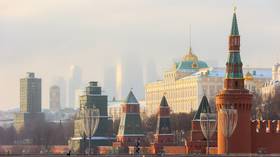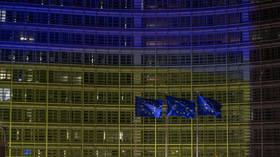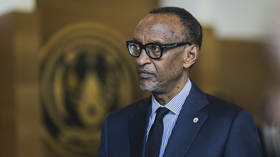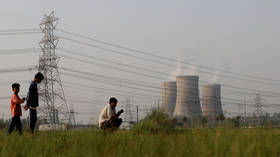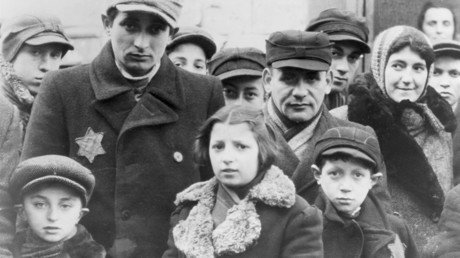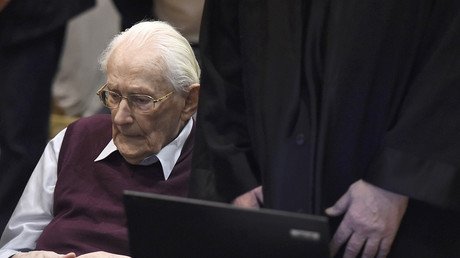Poland’s Holocaust-related law triggers backlash from Israel
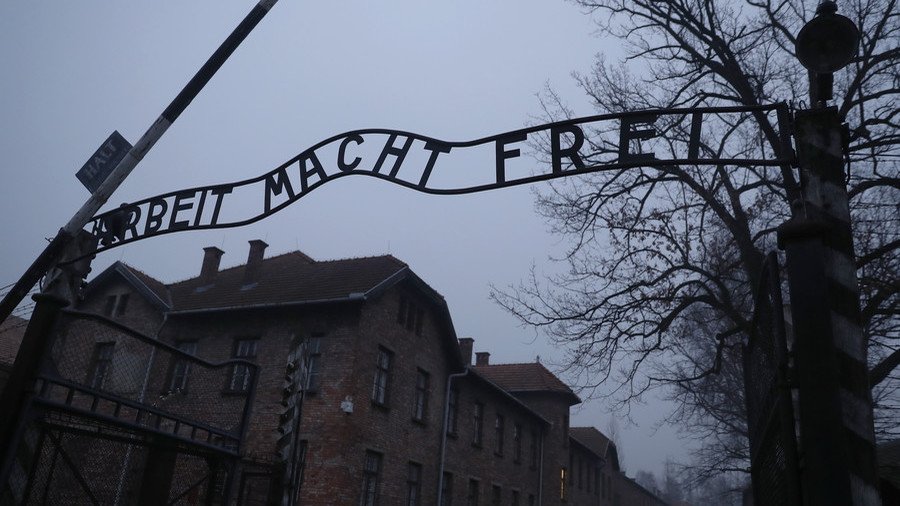
Israeli leaders are up in arms over pending legislation in Poland that would officially outlaw blaming Poles for the heinous Holocaust crimes committed on Polish soil during World War II.
Prime Minister Benjamin Netanyahu called the proposed law, passed by the lower house of the Polish parliament on Friday, “baseless.” The new legislation prescribes prison time for using phrases like “Polish death camps” to refer to the notorious mass concentration camps Nazi Germany operated in occupied Poland during World War II.
“One cannot change history, and the Holocaust cannot be denied,” Netanyahu wrote on Facebook late on Saturday, adding that he had asked the Israeli embassy in Poland to “meet tonight with the Polish prime minister to relay my firm stance against this bill.”
The bill, which still needs approval from Poland’s Senate and president, is perceived by critics as an attempt by the country’s nationalist government to target anyone who seeks to contest its official stance on the conduct of Poles during the war, which places emphasis on heroism and sacrifice while rejecting the complicity of some in mass murder. Under the new legislation, anyone who publicly attributes blame for the crimes committed by the Nazis to Poles or the Polish state would be liable for penalties.
“Non-governmental organizations indicate that every other day the phrase ‘Polish death camps’ is used around the world,” Poland’s deputy justice minister Patryk Jaki said in a speech before the lower house on Friday. “In other words, German Nazi crimes are attributed to Poles. And so far the Polish state has not been able to effectively fight these types of insults to the Polish nation.”
Israel’s Yad Vashem Holocaust memorial has issued a statement opposing the Polish legislation, saying it is “liable to blur the historical truths regarding the assistance the Germans received from the Polish population during the Holocaust.”
“There is no doubt that the term ‘Polish death camps’ is a historical misrepresentation,” the Yad Vashem memorial said. “However, restrictions on statements by scholars and others regarding the Polish people’s direct or indirect complicity with the crimes committed on their land during the Holocaust are a serious distortion.”
Former Finance Minister Yair Lapid, the head of Israel’s centrist Yesh Atid party, also lambasted the controversial bill on Twitter.
I utterly condemn the new Polish law which tries to deny Polish complicity in the Holocaust. It was conceived in Germany but hundreds of thousands of Jews were murdered without ever meeting a German soldier. There were Polish death camps and no law can ever change that.
— יאיר לפיד (@yairlapid) 27 января 2018 г.
“I utterly condemn the new Polish law which tries to deny Polish complicity in the Holocaust. It was conceived in Germany but hundreds of thousands of Jews were murdered without ever meeting a German soldier. There were Polish death camps and no law can ever change that,” Lapid wrote.
How does that relate to the fact that WW2 death camps were German Nazi, not Polish (our thread)? Shameless.
— שגרירות פולין (@PLinIsrael) 27 января 2018 г.
His comment added fuel to the fire, sparking the Polish Embassy in Israel to respond: “Your unsupportable claims show how badly Holocaust education is needed, even here in Israel.”
“My grandmother was murdered in Poland by Germans and Poles,” Lapid replied. “I don’t need Holocaust education from you. We live with the consequences every day in our collective memory. Your embassy should offer an immediate apology.”
To which the embassy retorted: “How does that relate to the fact that WW2 death camps were German Nazi, not Polish (our thread)? Shameless.”
Noting that 73 years had passed since the Auschwitz death camp on Polish soil was liberated, Israeli President Reuven Rivlin said that respecting the tragic page of history is a must.
Auschwitz is the most bitter lesson on how evil ideologies can lead to hell on earth. Jews, Poles, and all victims should be guardians of the memory of all who were murdered by German Nazis. Auschwitz-Birkenau is not a Polish name, and Arbeit Macht Frei is not a Polish phrase.
— Mateusz Morawiecki (@MorawieckiM) 27 января 2018 г.
“The Jewish people, the State of Israel, and the entire world must ensure that the Holocaust is recognized for its horrors and atrocities,” Rivlin said. “Also among the Polish people, there were those who aided the Nazis in their crimes. Every crime, every offense, must be condemned. They must be examined and revealed.”
Poland’s Institute of National Remembrance (IPN), a state research entity, accused the Israeli embassy in Poland of “inappropriate interference” in the law which has yet to be adopted.
Referring to Israeli ambassador Anna Azari, who denounced the bill as “revolting” in a speech on Saturday marking the 73rd anniversary of the liberation of Auschwitz, the IPN called her words “all the more puzzling since they were spoken in Poland, which was the first victim of the German invasion.”
For decades, Polish society tried to avoid discussing the killing of Jews by civilians, with atrocities usually blamed on the Nazis. The discussion was reinvigorated by the book “Neighbors,” published in 2000, by Polish-American historian Jan Tomasz Gross, which explored the murder of Jews by their Polish neighbors in the village of Jedwabne in 1941. Holocaust historians have gathered a large dossier of evidence of Polish villagers who murdered Jews fleeing the Nazis. According to one scholar at Yad Vashem, of the 160,000-250,000 Jews who had sought help from fellow Poles, only between 10 to 20% survived.
In 2011, Poland’s then-President Bronislaw Komorowski offered an apology during ceremonies marking 70 years since Polish villagers murdered hundreds of their Jewish neighbors in a World War II massacre.




